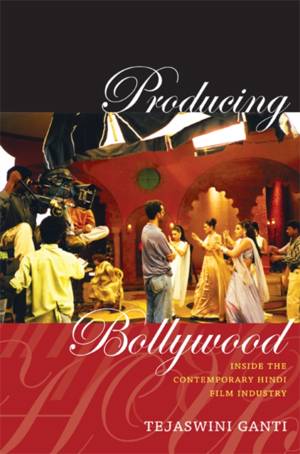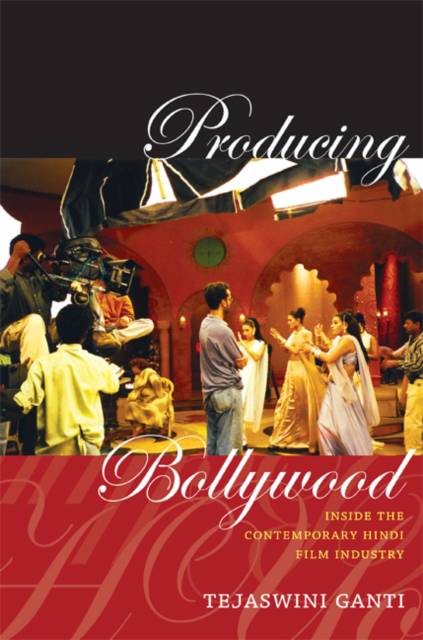
- Afhalen na 1 uur in een winkel met voorraad
- Gratis thuislevering in België vanaf € 30
- Ruim aanbod met 7 miljoen producten
- Afhalen na 1 uur in een winkel met voorraad
- Gratis thuislevering in België vanaf € 30
- Ruim aanbod met 7 miljoen producten
Zoeken
€ 64,45
+ 128 punten
Omschrijving
Producing Bollywood offers an unprecedented look inside the social and professional worlds of the Mumbai-based Hindi film industry and explains how it became "Bollywood," the global film phenomenon and potent symbol of India as a rising economic powerhouse. In this rich and entertaining ethnography Tejaswini Ganti examines the changes in Hindi film production from the 1990s until 2010, locating them in Hindi filmmakers' efforts to accrue symbolic capital, social respectability, and professional distinction, and to manage the commercial uncertainties of filmmaking. These efforts have been enabled by the neoliberal restructuring of the Indian state and economy since 1991. This restructuring has dramatically altered the country's media landscape, which quickly expanded to include satellite television and multiplex theaters. Ganti contends that the Hindi film industry's metamorphosis into Bollywood would not have been possible without the rise of neoliberal economic ideals in India. By describing dramatic transformations in the Hindi film industry's production culture, daily practices, and filmmaking ideologies during a decade of tremendous social and economic change in India, Ganti offers valuable new insights into the effects of neoliberalism on cultural production in a postcolonial setting.
Specificaties
Betrokkenen
- Auteur(s):
- Uitgeverij:
Inhoud
- Aantal bladzijden:
- 440
- Taal:
- Engels
Eigenschappen
- Productcode (EAN):
- 9780822352136
- Verschijningsdatum:
- 7/03/2012
- Uitvoering:
- Paperback
- Formaat:
- Trade paperback (VS)
- Afmetingen:
- 155 mm x 231 mm
- Gewicht:
- 598 g

Alleen bij Standaard Boekhandel
+ 128 punten op je klantenkaart van Standaard Boekhandel
Beoordelingen
We publiceren alleen reviews die voldoen aan de voorwaarden voor reviews. Bekijk onze voorwaarden voor reviews.











